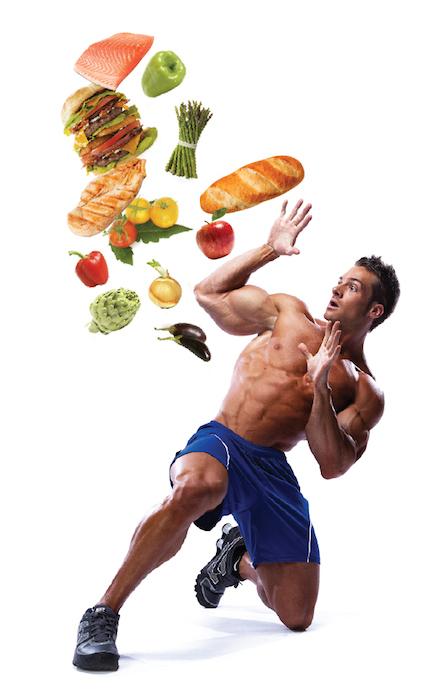Freak Fitness

As a strongman competitor, Darren has pulled 50,000 lb trucks and dead lifted 805 lbs. As a competitive bodybuilder, he has won Provincial Super-heavyweight & Overall titles. As President & CEO of FREAK Fitness, he has coached his clients to hundreds of Novice, Provincial/State, National, and IFBB Pro titles. Having been involved in the sport of bodybuilding for over 20 years, Darren has his finger on the pulse of the local and international bodybuilding scenes, and will be keeping you informed through his column, “Freak Fitness."

How To Use Nutrition To Lean Out
Because of the ongoing surge of high placings, National titles, and IFBB pro cards my clients have been earning, I’ve been receiving a lot of questions about my views on contest nutrition. People want to know “the FREAK secrets” to dieting for competition.
One of the main reasons my clients experience so much success is that my approach to each client is unique to the individual. There isn’t one “perfect” diet for everyone, and it takes time to zero in on what works best for a particular client. Yes, it’s a lot more work than simply providing a “cookie cutter” plan, but the results my clients achieve are well worth the extra effort I put in. With that said, there are a number of common elements that I can share with you that will give you some insight into how I diet my clients.
- I feed my clients! One of the simplest ways to keep my clients’ metabolisms fired up is having them eat! I do make them earn all of those calories, though, with hard-core weight-training workouts and high-intensity cardio sessions, but my clients are athletes first. The combination of hard work and lots of food produces a winning look, and better yet, minimal post-competition rebound.
- I have my clients eat frequently throughout the day. Depending on the individual and his or her day-to-day activities, I prescribe no less than five meals daily, and I’ve prescribed that a few of my super-heavyweight bodybuilders eat as many as nine meals daily. Smaller, more frequent feedings boost metabolism, allow for better digestion and absorption, and allow for more variety of food.
- I encourage a variety of different protein, carb, and fat sources. This isn’t choosing between chocolate cake or strawberry Pop-Tarts for carbs. I mean choosing between rice or potato for a performance-enhancing starch. I realize with people trying to prep food for days in advance that the practical application of this can be challenging, but the point I’m trying to make is if you run out of chicken breast, you can have turkey breast instead without having to think you blew your diet
- I never exclude any macronutrients. Absolute restriction diets such as keto, Atkins, high-carb/no-fat, etc. can be useful to create a short-term and specific response when fine-tuning closer to the show, but I never use these types of diets as a base plan because they cannot be sustained over the long term. Ask any person who advocates the keto diet, and I guarantee you he or she doesn’t follow it year round. Why do you think that is?
- My pre-contest diets range from 12 weeks to as long as 20 weeks, with 16 weeks being the most common. Regardless of when we start, the more time I have to work with my client the better, so I’m able to make smaller, more frequent adjustments to the diet. Again, unlike the “one size fits all” diet approach, my ongoing fine-tuning as we get closer to the show is much easier for clients to adjust to and, even more importantly, allows a more precise peaking of clients’ physiques for the big day.
- I do use re-feed—or, more commonly, “cheat”—meals, but I use them as a tool, not as a reward, and not everyone needs them. When my clients provide me weekly structured updates and pictures, I’m looking at the information provided and at trends. Over time, certain indicators will signal a need for a re-feed meal. I can’t predict if or when a client will get a re-feed meal, but I do know the importance of getting one when there’s a need for one.
In summary, for those of you who were hoping I would reveal some of “the FREAK secrets,” I’m not sure if I gave you the answers you were looking for, but what I hope you did learn is that there’s no “best” diet for everyone, but there’s a best diet for you.

